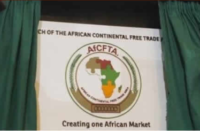To further unlock real estate potentials in the country, economists and real estate practitioners from Nigeria and other countries have advocated for the removal of bottlenecks that hinder local and international investments in the sector.
The experts, who spoke at a business forum organised by the International Real Estate Federation (FIABCI), Nigeria chapter, called for holistic reforms in the ease of doing business that align economic growth with population growth rate and development impact on Nigerians.
They also sought for ease of secured property right/ portability of titles, registration system that enable people to provide reliable data for investors, transparency in the sector and enforcement of right policies in the built sector.
Core elements of the property markets in any developed economy includes, ease of property rights, access to credit, effective governance of the industry, appropriate regulation and financial transparency. However, majority of these indicators, are a far cry from being well entrenched in the industry.
Speaking on the theme, “Ease of doing “business” real estate perspective (series two), a former World Bank economist and founder, Thought for Action, Ms. Elena Panaritis, explained that real estate is a fundamental indicator for growth in any economy as land and labour are two basic factors for production.
She said when the two basic factors are well established; secured, well traded correctly in a formal manner; there would be progress towards the industrial revolution in the economy.
“The lack of secured property right and lack of secured registration system which enable people to provide data hinders who wants what, and who own what. When a country successfully trade land and labour in a formal manner, then the country would become a developed economy. You can’t just put land in the pocket and you trade things. The moment when the two factors are traded correctly, there is no doubt that the economy will evolve. All countries have land and labour but the technologies, human capital and innovations move away because the robustness of the initial layer for economic growth is not there and not sustained.”
“The reason why real estate is one of the indicators of development is that it incorporates two basic factors of production which include, land and labour and so when we say a country is developed, its real estate is sustainable and focused.”
In the doing business indicators, it is so important to understand that they are holistic, you can’t just take one indicator out of isolation. While making trends of reforms in Nigeria, she said authorities should generate development trust for investment to be attracted”, she stated.
Panaritis who was the guest speaker, expressed concerns that Nigeria has huge land and labour capacity, yet its growth rate is small at about two per cent and its sustainability is questionable. She observed that despite the reality that country has already moved 39 places on the improvement in the ease of doing business; this needs to trickle down to changes that would attract serious investment.
“Nigeria should become engine for growth and with about 206 million population, become a leading economy in Africa.”
The Special Adviser to President Muhammadu Buhari on Ease of Doing Business, Dr. Jumoke Oduwole said there is no better time to be in real estate than now.
According to her, the new finance bill of 2019 been worked on by the Federal Government, has provisions for reform in real estate investment tax , so that players wouldn’t have problem with issue of double taxation.
Oduwole said a lot of reforms are on-going to promote the ease of doing business in Nigeria, while a number of states are already making progress especially, in the south, southeast, southwest and the north on the ease of doing business. “We have a lot of state governments starting with Lagos, decentralising different procedures/ process and using automation in getting titles and construction permits. We need more engagement with stakeholders because a lot of stakeholders don’t know about these reforms, which have been in existence as far back as two years ago. When we know about the reforms that are available in the sector, then we get to feel the impact on the economy.”
Recalling his experience in the sector, developer/Chief Executive Officer, TAF Holding Company, Mr. Mustapha Njie stressed the need for eight policy, regulation and enforcement for much growth in the industry.
For the World President of FIBACI, Mr. Wallis Moussa, there was the need to open up the real estate sector to international market.
Culled: The Guardian



